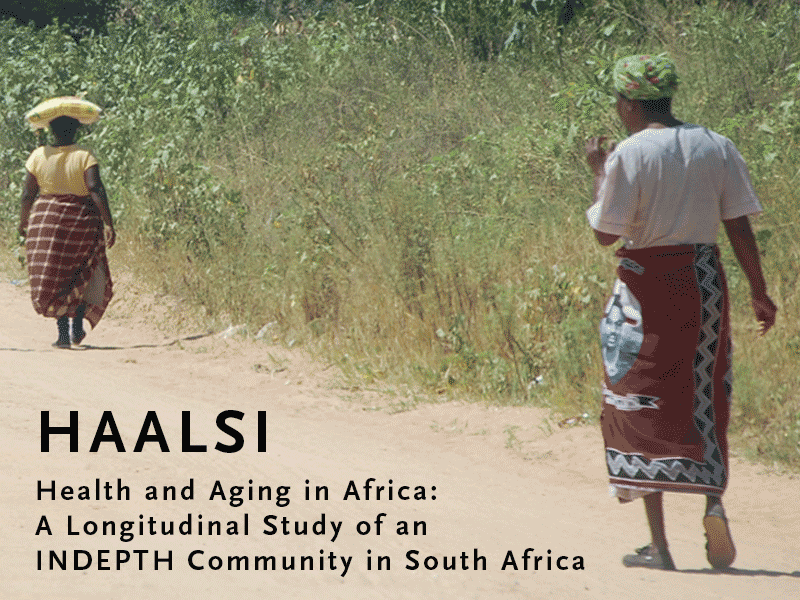A paper by Harvard Pop Center post-doctoral fellow Christina Cross, PhD, was selected by the National Council on Family Relations (NCFR) as the winner of the 2020 Reuben Hill Award. Cross’s paper, which is being recognized for making a “substantial and significant contribution to family research and theory (with a requirement of theory development),” was selected by a committee that reviewed over 30 leading scholarly journals in the family field.…
Education is not only factor in cognitive health disparities between older men and women in rural South Africa
Researchers affiliated with HAALSI, a longitudinal project focused on an aging population in South Africa, have published a study that emphasizes the need for additional research focused on strengthening the cognitive resilience of older women, given the predominately female composition of aging populations worldwide.
Mother’s education level linked to child’s risk of obesity
A mother’s education level has been found to be linked to her offspring’s body mass index (BMI) as early as three years of age in three European countries. The recent findings by Harvard Pop Center affiliates (faculty member Mauricio Avendano, Bell Fellow Emilie Courtin, and former visiting scientist Cathal McCrory) and their colleagues have been published in Paediatric and Perinatal Epidemiology, and the study has received attention in the news……
Continue reading “Mother’s education level linked to child’s risk of obesity”
New HAALSI study findings: Education negates height disparity in cognitive function for older adults living in South Africa
A study published by HAALSI researchers, including recent Harvard Bell Fellow Lindsay Kobayashi, Pop Center Director Lisa Berkman, and faculty members S V Subramanian (Subu), Kathleen Kahn, and Stephen Tollman, finds that while short stature may be a risk factor for cognitive function among older adults living in South Africa, education was found to negate the relationship between height disparity and cognitive function.
Education interrupted: Impacts of family disruption on children’s educational attainment
Recent Bell Fellow Juli Simon Thomas, PhD, has authored a paper that confirms that disruptive events within a family, such as parental loss/gain of job/partner lowered the chances of their children completing high school, attending college and finishing college, and more significantly contributes new insight into the increased negative effects of multiple events within a 2-year period.
Does timing of socioeconomic status (SES) impact late-life memory function and decline differently?
Researchers have found that early- and later-life SES has an impact on late-life memory in differing ways. The study is published in the American Journal of Epidemiology by Harvard T.H. Chan School of Public Health doctoral student Jessica Marden, along with Harvard Pop Center faculty members Ichiro Kawachi and M. Maria Glymour.
Are more girls enrolled in charter schools than boys?
Jennifer Jennings, PhD, a Harvard RWJF Health & Society Scholar program alumna, is co-author of a paper that explores the apparent gender gap in charter school enrollment, with more girls being initially matriculated, and boys being less likely to stay in these types of schools. The study received some attention in the press.
Novel use of genetic variants may shed light on link between education level & dementia in older age
A study published in the journal Annals of Epidemiology by Harvard Pop Center affiliated researchers including Ichiro Kawachi, Sze Yan Liu, and Maria Glymour introduces the use of genetic variants as instruments to help identify the causal effect of educational attainment on dementia risk. The study, based on instrumental variable (IV) analyses, suggests education is protective against risk of dementia in older adulthood.
Montez briefs Congress on education as key factor in health and longevity
Jennifer Karas Montez, PhD, Harvard RWJF Health & Society Scholars program alumna, briefed Congress on the impact of education on mortality and health at a Congressional briefing sponsored by PAA.
Universal education in Uganda and its impact on HIV stigma
Alexander Tsai and Atheendar Venkataramani have co-authored a study in Social Science and Medicine examining the causal effect of education on HIV stigma in Uganda. The study found that negative attitudes about HIV were as prevalent among younger people as among older, despite the younger people having received additional schooling (as a result of a 1997 policy that mandated universal primary education in Uganda).


